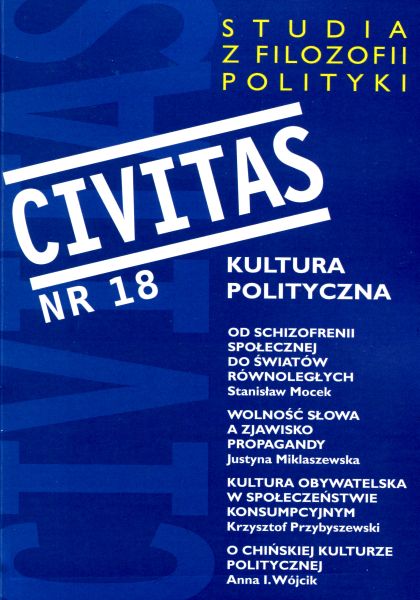Filozoficzne ujęcie kultury politycznej
Political Culture from the Perspective of Political Philosophy
Author(s): Agnieszka NogalSubject(s): Politics / Political Sciences, Philosophy
Published by: Instytut Studiów Politycznych PAN
Keywords: political culture; civic culture; social culture; public culture
Summary/Abstract: The theory of political culture was presented by two well-known scientists, Gabriel Almond and Sidney Verba. They outlined three pure types of political culture that can be combined to create civic culture. They argued that we are in transition toward a more universalistic political culture, which may be characterized by unification and participation. The thesis of this paper is that we observe a return of the category of political culture in philosophical and normative, rather than in sociological and descriptive, terms. A well-known political philosopher, John Rawls, created a model of liberal political culture. Other modern scholars also suggested that education and political culture are the keys to establishing the institutional forms of liberal democracy. The difference between the recent understanding of political culture and that presented by Almond and Verba in the 1970s is vivid and important. In the 1970s, political culture was perceived in sociological terms – as a historically shaped set of attitudes and practices which can be described by using quantitative and qualitative tools. Today, political culture has become a subject of research in the field of political philosophy. It is recognized in its normative dimension, and it shapes a debate around the positive model of citizenship.
Journal: Civitas. Studia z filozofii polityki
- Issue Year: 2016
- Issue No: 18
- Page Range: 91-109
- Page Count: 19
- Language: Polish

